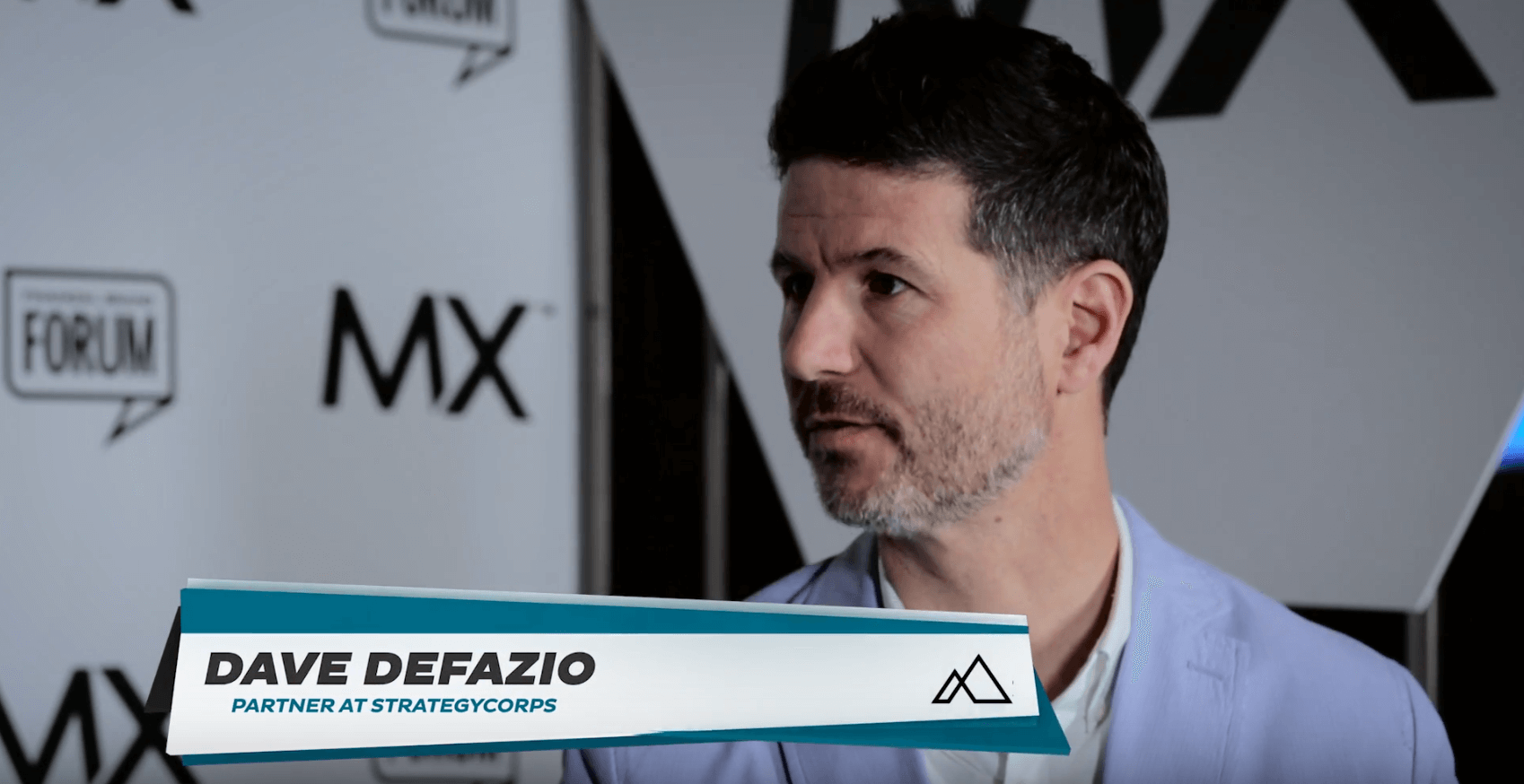Putting Data in Action: Why Consumers Expect It — and Deserve It
June 25, 2025 | 2 min read

 Blog
Blog
June 22, 2016|0 min read
Copied

We talked to Dave DeFazio, partner at StrategyCorps, about Bazing — a product that offers cost-savings for account holders at banks and credit unions. Some of StrategyCorps's client institutions offer the service for free, but others charge for it and earn five or six dollars a month from 30 to 50% of their checking account base. In other words, account holders find the service so valuable that they willingly pay a fee for it every month, resulting in immediate ROI for StrategyCorps's clients.
To learn more, watch the video above or read the transcript below.
We're based in Brentwood Tennessee, which is a suburb of Nashville. We have two toolboxes. One we call Bazing, which is a collection of non-banking benefit that we extend to our financial institution clients. It has things in it like discounts with local merchants — we have 360,000 deals all across the country and we also add to it things like cell-phone insurance, roadside assistance, and things that are good enough that people want to pay for them. So we mix it up, deliver in an app, and then we help our clients figure out how to mix it in with their products. Some give it to all their customers and some charge a fee for it.
And then we have another toolbox called CheckingScore. The way I like to say it is that banks have a lot of information about their customers, they just don't always use it in the most practical ways to support decisions so we build a model that allows us to take a data extract and we do some householding. We find out who's connected to whom, and then based on those connections we show the banks who their best and not-so-best customers are and we give them strategies to protect the best ones and improve the underperforming ones.
Yes, that's it.
Yeah, I'll use myself as an example. Sometimes I say I'm a little bit embarrassed that I use a coupon app for a living but I'm not really a coupon clipping kind of guy. I don't buy the Sunday paper, I don't hit the internet every time I'm going to make a purchase. So we kind of built Bazing for me, really. The way our app works is that we have these deals — 360,000 of them — and when we engage with the bank we go into their market and add more of their small business customers. It's free for them to participate, so it's like a community love affair between the bank and the small businesses. And the difference maker that we have is that we made them all location aware. We have a geofence. Think of it like a circle on a map with all those deals. So I'm not a coupon clipping kind of guy, but I am a if you hand me a coupon when I'm walking into the store I'll use it kind of guy. The cool part of our app is that even if the apps in the background are not on at all, if I walk into a place where we have a discount it pops up on my phone automatically to remind me that I can get a discount. So somebody like me who never clipped coupons before is now saving hundreds of dollars per year because of location reminders.
Rewards have been around for a long time. Mostly they have a deferred payback. They're trying to increase debit swipes or increase relationships. They many times can do that, but we have a much more direct return on investment in that most of the banks and credit unions we engage with take the Bazing benefits, mix it into their products and then they charge fees for them. It's a form of customer-friendly fee income. The way I say it is, 'Hey, 100% of banks need fee income. The only problem is that 0% of customers want to pay for banking products today. But, every day people for other things that they value.
A couple of sets I always talk about is that there are 300 million or so people in the United States. 200 million of us — that's two out of three — belong to either Sam's Club, Costco, Amazon Prime, AAA, insurance on a cellphone or Spotify.
I bet a dollar you belong to at least one of those.
I do.
Okay, so people pay for those things. With Bazing we try to find things that are valuable enough that people would like to pay for them and then we help the banks figure out a marketing strategy. A lot of our banks have a range of about 30 to 50% of their DDA base paying five or six bucks a month for something they value.
I talk a lot about how we're arriving at the end of the free checking era. You think about the last 15 years or so — 20 years maybe — if you had overdrafts and free checking, the product design more or less took take of itself if you were a bank. But since all the monkey business happened back in 2008, we've legislated a lot of our fee income. And yet as I said before every bank needs fee income. So the question is how we're going to expand. We've been trying customers for 15 years that everything is free. So now because of all these pressures, banks are being forced to take a step back, think about their product lineups, and make this transition away from free, and that's a difficult thing to do.
June 25, 2025 | 2 min read
June 23, 2025 | 2 min read
June 10, 2025 | 2 min read
